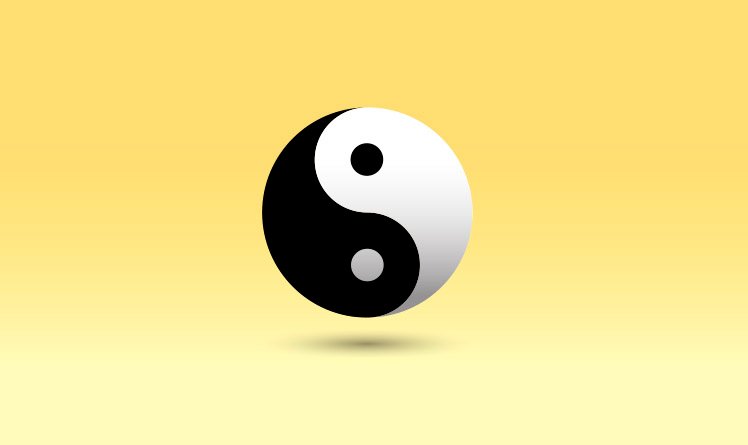Yin Yang: The balance between body and mind for a fuller life

|
Getting your Trinity Audio player ready...
|
Have you ever felt like your life is out of balance? Maybe you're always chasing deadlines, accumulating stress, or feeling exhausted for no apparent reason. The concept of Yin Yang may be the key to restoring harmony between body and mind.
Yin Yang is a fundamental principle of Chinese philosophy that represents the duality present in everything in the universe. It teaches us that opposing forces are not enemies, but complementary. When we apply this concept to our lives, we find a path to physical, mental, and emotional well-being.
In this article, we'll explore the origins of Yin Yang, its relationship to human balance, and how to apply it in everyday life to achieve a fuller, more harmonious life.
The origin and meaning of Yin Yang
Chinese philosophy and the concept of duality
THE Yin Yang emerged in ancient Chinese philosophy as an essential principle of Taoism. It represents the idea that everything in the universe is composed of opposing and interdependent forces. In simple terms, Yin is associated with the feminine, darkness, cold, and introspection, while Yang represents the masculine, light, heat, and action.
If we look at nature, we will see the duality present in all natural phenomena:
- THE day it only exists because there is a night.
- THE summer need the winter to maintain climate balance.
- THE movement only occurs because there are moments of pause.
On the other hand, the concept goes beyond simple opposites. Thus, it shows us that these forces not only coexist but depend on each other to exist. Just as day needs night, the active energy of Yang needs the rest and receptivity of Yin to remain balanced.
Thus, unlike the Western idea of mutually exclusive opposites (such as good and evil), in Eastern philosophy, duality is seen as an interdependent relationship. There is no light without darkness, just as there is no rest without effort.
The relationship between Yin and Yang in the universe and in human beings
In the universe, Yin and Yang are always in motion, creating balance and transformation. This idea applies directly to human beings. Thus, when our mind and body are aligned with this duality, we experience well-being. Conversely, when there is an imbalance, we feel negative effects such as anxiety, fatigue, and stress.
The key is to understand how these energies manifest in our daily lives and learn to cultivate them in a healthy way.
How Yin Yang Influences Well-Being
The connection between body and mind
Duality is also present in our minds and emotions. We all experience moments of motivation (Yang) and introspection (Yin). Some people, however, get stuck in one of these extremes.
Thus, our body and mind function as a reflection of the balance between this duality. Therefore, when we are overwhelmed with tasks, worries, and constant stimuli, Yang predominates, causing anxiety, impulsivity, hyperactivity, exhaustion, and irritability. On the other hand, when we isolate ourselves or remain apathetic for too long, Yin can dominate, leading to stagnation, apathy, lack of motivation, and even depression.
The balance between reason and emotion
Duality also manifests itself in our decision-making process. We often have to balance reason (Yang) and emotion (Yin). If a person makes decisions purely rationally, they can become cold and calculating. On the other hand, those who act solely on emotion can make impulsive decisions.
The ideal is to develop harmony between the two sides, understanding that intuition and logic can coexist and work together.
How to identify energy imbalances
Signs of imbalance can vary from person to person, but some common examples include:
- Excess Yang: Agitation, insomnia, anxiety, impatience and muscle tension.
- Excess Yin: Constant fatigue, lack of motivation, melancholy and social isolation.
The secret is to identify these patterns and adopt practices that bring back harmony.
Practices to balance Yin and Yang
Food and Energy: Yin and Yang in Nutrition
What we eat directly influences our energy balance. Hot, energetic foods, such as meat, coffee, and fried foods, are Yang, while fruits, raw vegetables, and teas are Yin.
To maintain harmony, it's best to vary your diet according to your needs. If you feel overly energized, include more Yin foods like vegetables and fruits. Conversely, if you're lacking energy, increase your intake of Yang foods like proteins and warming spices.
Physical exercises to harmonize body and mind
Physical activities also follow the logic of Yin and Yang. Thus, exercises High-intensity practices, such as weight training and running, are Yang, while gentle practices, such as yoga and tai chi chuan, are Yin.
For optimal balance, alternate dynamic exercises with moments of relaxation and stretching. This prevents excessive fatigue and promotes a healthier energy flow throughout the body.
Mindfulness and meditation as tools for balance
Meditation and the mindfulness They help balance the mind and emotions, making us more aware of our internal energies. Therefore, practicing conscious breathing or dedicating a few minutes a day to meditation can restore Yin to a Yang-dominated routine.
Yin Yang and Neuro-Linguistic Programming (NLP)
NLP teaches that our thoughts and behaviors are shaped by subconscious patterns. Thus, when we are out of balance, we reinforce limiting beliefs that keep us trapped in negative cycles.
By applying the concept of Yin Yang, we can restructure our mindset. For example, if you notice that you're overly reactive and stressed (excessive Yang), you can adopt relaxation and cognitive restructuring techniques to bring more Yin into your emotional state.
Similarly, in relationships, Yin and Yang appear in the way we communicate. Some people talk a lot (Yang), while others listen more (Yin). Healthy dialogue requires a balance between expressing oneself and actively listening.
Cultivating this duality improves interpersonal connections and avoids unnecessary conflicts.
Applying the concept of Yin Yang in everyday life
Modern life tends to push us toward excess Yang, with constant stimuli and task overload. Therefore, creating moments of pause, self-care, and introspection helps restore balance.
Furthermore, learning to recognize when we're overwhelmed or lethargic gives us the power to adjust our actions. Small changes in routine, such as alternating periods of intense work with moments of relaxation, make all the difference in overall well-being.
In short…
Yin Yang teaches us that balance is not a fixed state, but a continuous process of adjustment. Thus, when we understand this dynamic and apply its principles to our diet, exercise, mind, and relationships, we build a fuller and more harmonious life.
How about starting now to observe how Yin and Yang manifest in your daily life? The path to balance is closer than you think!
Recommended reading:
Yin and Yang – The Taoist Harmony of Opposites – JC Cooper (Author) and João Azenha Jr. (Translator)
Image: Freepik

Marcel Castilho is an expert in neuromarketing, neuroscience, mindfulness and positive psychology. In addition to being an advertiser, he also has a Master's degree in NLP – Neurolinguistic Programming. As the owner and founder of the communications agency VeroCom and also of the digital agency Vero Contents, he has been studying human behavior for over 30 years.


